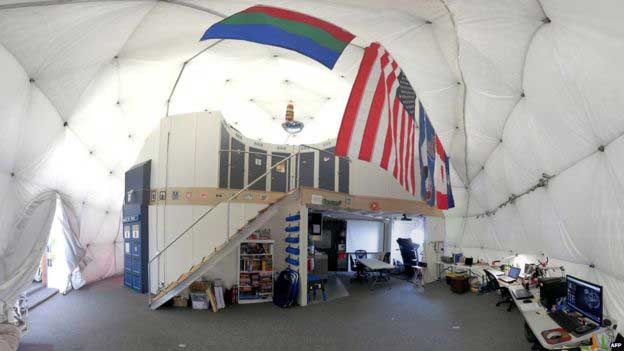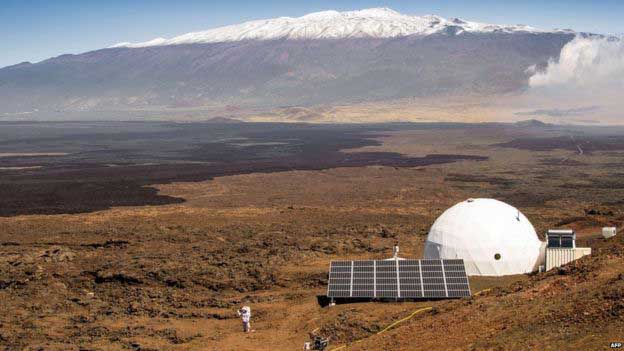Hawaii – A team of six people recruited by NASA started to live under a dome near an old volcano in Hawaii. The objective is to imitate the life they would have if they live in Mars. The isolation experiment began at 3pm Friday and will go through an entire year, making it the longest experiment of this type ever attempted.
The experiment will help NASA prepare for the possible human mission to Mars. The team will live under the dome without fresh food, fresh air, or privacy. They will be unable to leave the dome without a spacesuit and enjoy of limited Internet access. The dome itself measures only 11 meters diameter and 6 meters tall. Its surroundings has little vegetation and no animals.

The Simulation
A German and French scientists and four Americans including an architect, a pilot, a soil scientist and a journalist were the people brought together by NASA for the task. The team of three men and three women will have a small cot to sleep and a desk in their rooms. They will also be provided with food packets including canned tuna and powdered cheese.
These studies are necessary as astronauts who go to Mars will spend much longer than six months out there, which is the time humans commonly spend at the ISS or the orbiting International Space Station.
Spending long hours in a closed area with no access to food, fresh air and privacy are factors that will most likely rise to conflicts. NASA is aiming to study how these scenarios develop on Earth in its program called Hawaii Space Exploration Analog and Simulation (Hi-Seas) before embarking on a trip to Mars, possibly around 2030, according to the space agency.

Mars One
Mars One is a project announced in May 2012 that has proposed to establish a permanent human colony on Mars by 2026.
To prepare for the settlement, the first robotics mission is expected to take place in 2020. The company has planned for crews to depart for the first time on their one-way journey to Mars in 2026. After that, other crews will depart every 26 months after the landing of the first team.
According to Mars One the mission will provide a better understanding of the universe in many ways, “Mars is the stepping stone of the human race on its voyage into the universe. Human settlement on Mars will aid our understanding of the origins of the solar system, the origins of life and our place in the universe” the company said in a statement.
Source: International Business Times
